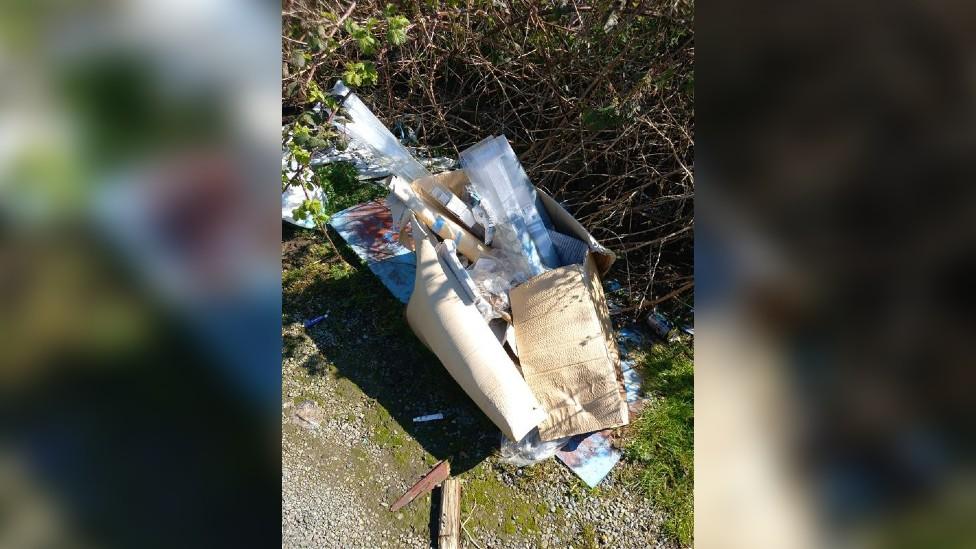Council praised for its fight against the fly-tippers
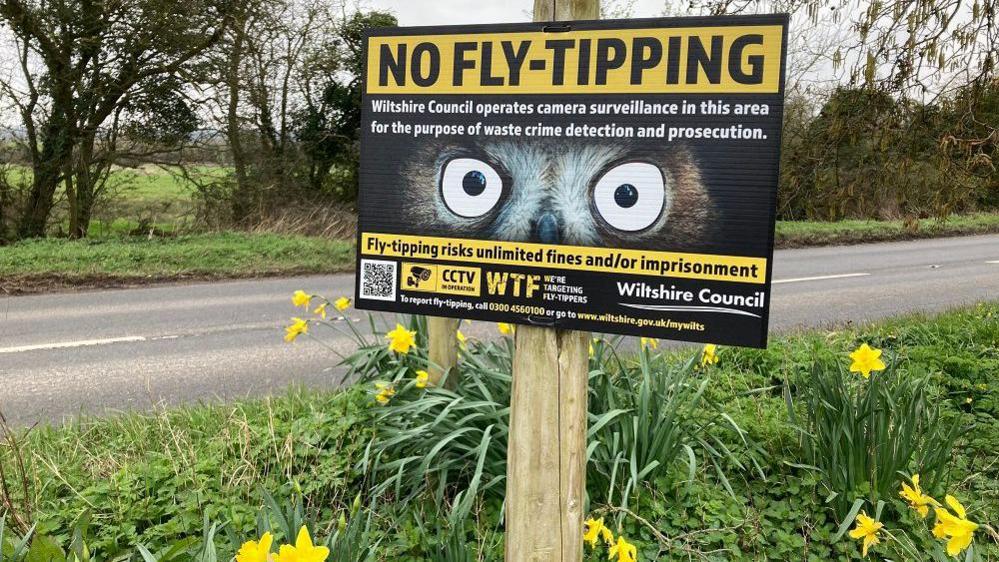
CCTV is one of the ways Wiltshire Council is combatting fly tipping
- Published
A council has successfully managed to reduce fly-tipping thanks to a new information campaign and well-publicised prosecutions.
Wiltshire Council said it spends £2m a year picking up litter and fly-tipped waste, and more disposing of the rubbish properly.
The council was presented with The Environmental Campaign of the Year Award by Keep Britain Tidy.
The judges were impressed by Wiltshire's 'We're Targeting Fly-tippers' campaign (or WTF).
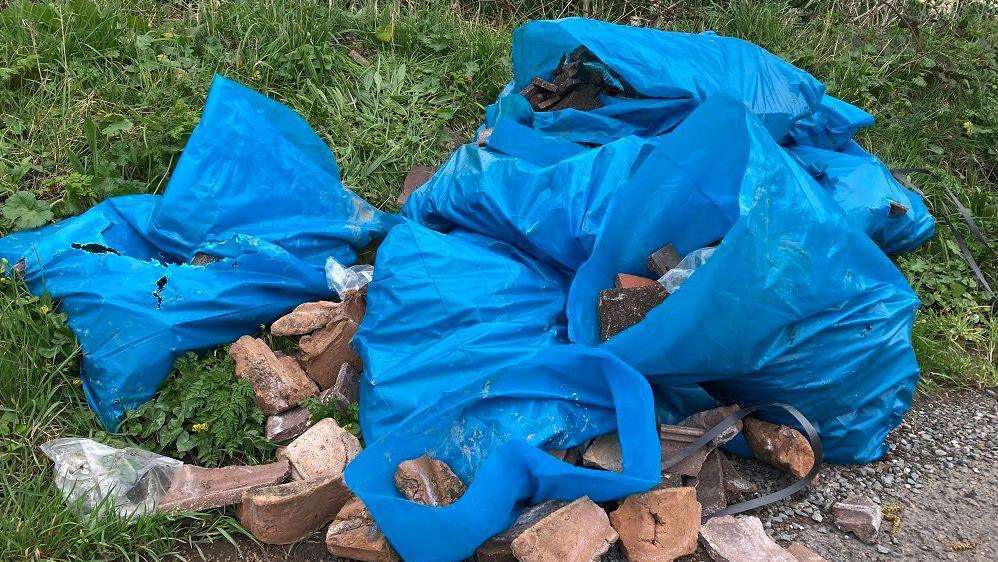
Building rubble is a common type of waste to be fly-tipped
Government figures show that most councils saw an increase in fly-tipping over the pandemic years.
Between 2019 and 2020 there were more than 2,800 recorded incidents in Wiltshire, that rocketed to more than 3,700 during lockdown.
Wiltshire is one of the authorities that has managed to reduce incidents thanks to active campaigning, with recorded incidents now down to around 2,600.
Lay-bys along country roads are one of the regular places for fly-tipping, especially in a large rural county.
Large rural county
Household waste can sometimes be tracked back to where it came from, however, building or DIY waste is much harder to trace.
Wiltshire Council's Head of Highways Adrian Hampton said: ""This is a real big problem - you've got asbestos waste. We come across tubs - what's in it? We don't know.
"That makes it even more expensive because we have to treat it in the most hazardous way, but it could be something harmless.
"All those risks are simply avoided if people dispose of the waste properly."
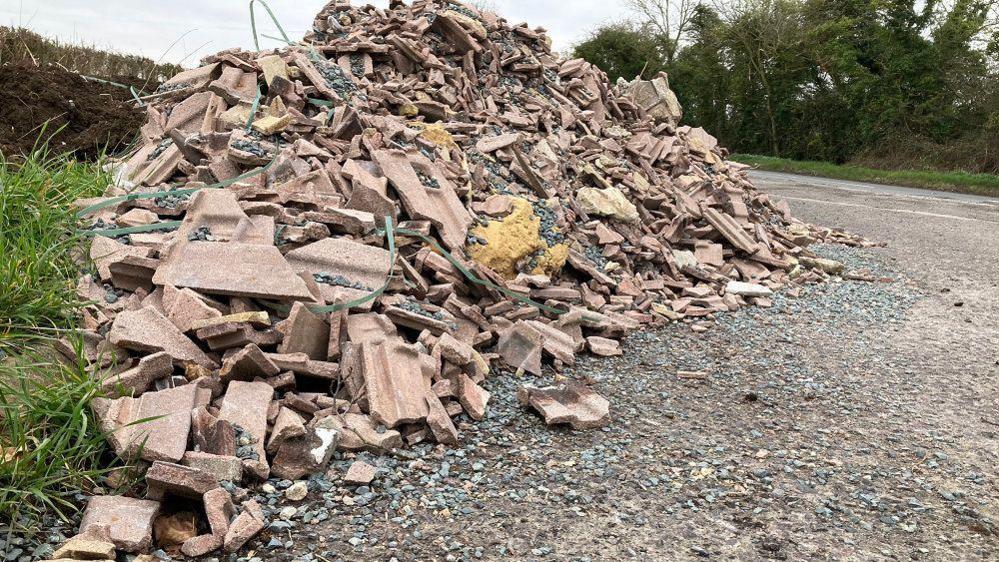
A large pile of rubble was also dumped at the lay-by along the A360
The council is continuing to use CCTV footage and evidence gathering to successfully prosecute offenders and there has been an increase in fixed penalty notices.
Wiltshire Councillor Caroline Thomas is urging households to make sure their extra waste is going to the right places:
"It's really important residents should make sure they do three things [when they pay someone to collect waste]. Check for the waste carrier licence notes, take the vehicle registration and get a receipt.
"That way they can protect themselves because if a householder inadvertently gives their waste to somebody then that person tips it, the householder can be responsible" she explained.
See Also
- Published18 January 2024
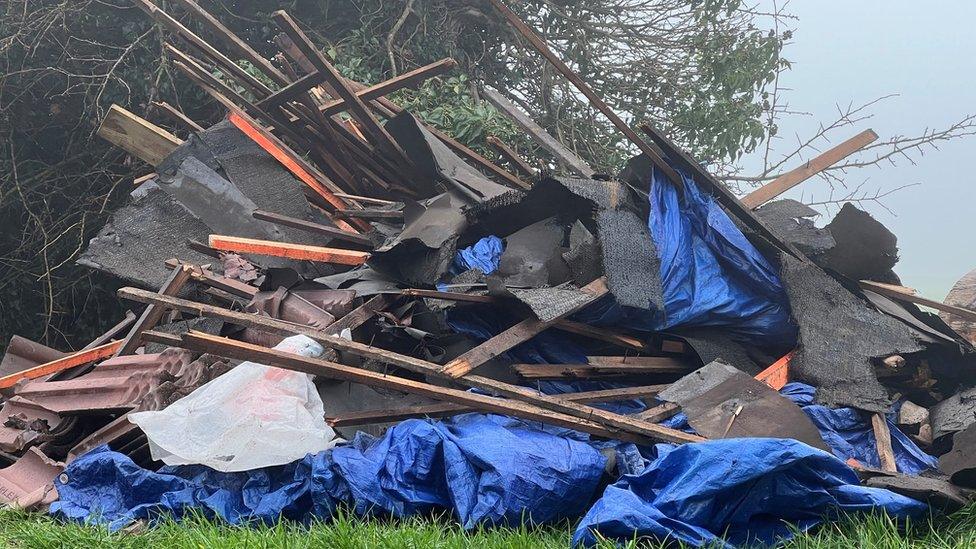
- Published13 October 2023
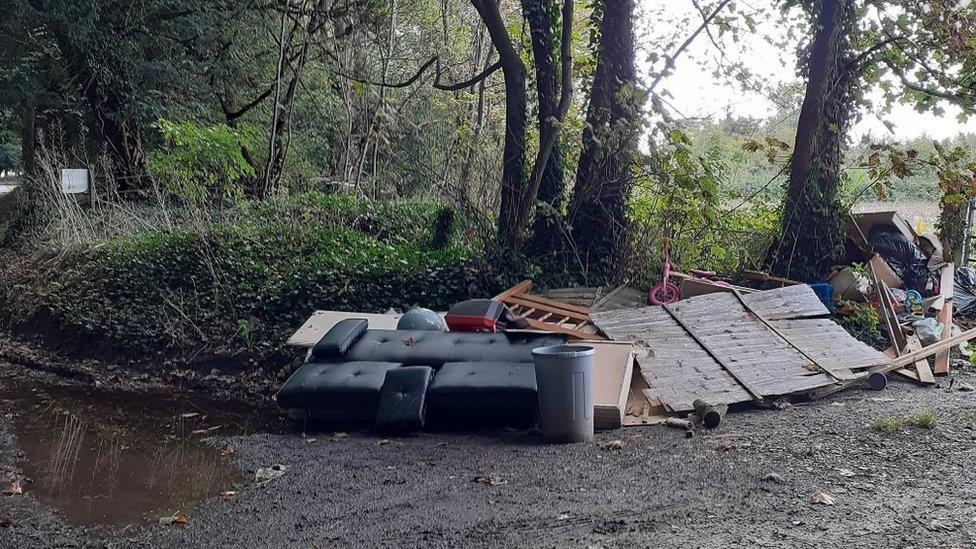
- Published24 July 2023
